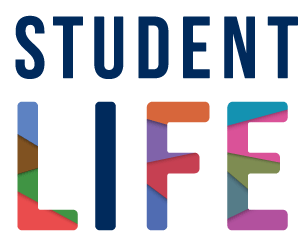This article was originally published by Geoffrey Vendeville on U of T News on July 15, 2020. Reprinted with permission.
Not even a global pandemic could stop the University of Toronto’s First Nations House from carrying on its tradition of celebrating the university’s Indigenous graduates.
In a first for the St. George campus’s Indigenous hub, students and staff logged onto Zoom this week for an Indigenous graduation celebration to honour students who obtained degrees in law, social work and many other fields. The event followed U of T’s first-ever virtual convocation on June 2, when more than 15,000 students received their degrees in absentia.
While the online format presented First Nations House organizers with challenges, it also provided them with an opportunity to do a few things differently. That includes a musical performance by a Métis duo and a special message from U of T alumna Cindy Blackstock, a member of the Gitxsan First Nation, executive director of the First Nations Child and Family Caring Society and a McGill University professor.
“Even though things may feel a little uncertain in your own life, I want you to know there’s places in the world for each of your gifts,” said Blackstock in a recorded message for graduates.
She added that she faced times of uncertainty herself, including when she helped bring forward a human rights challenge against the Canadian government for the inequitable provision of child welfare services to 163,000 First Nations children.
Blackstock, who received an honorary degree from U of T in 2018, also shared lines from a poem by Patrick Overton that she says has helped her overcome hard times: “When you step across that place where light leads into darkness, there will be something solid to stand on, or you’ll be taught to fly.”
Watching from her parents’ home, U of T graduate Meagan Lindley, who earned her master’s degree in social work, was touched to see one of her academic idols deliver congratulations to Indigenous members of the class of 2020.
“I was fan-girling really hard,” Lindley said. “If I had a dollar for every time I’ve quoted Blackstock in my papers, I would have had my tuition paid for.”
Lindley, who is Métis, said that, while she would have liked to celebrate graduation in person and hug her First Nations House family under different circumstances, she was grateful to be able to celebrate their achievements online. In First Nations House, Lindley said she found a safe space to study and socialize, and even to conduct interviews with other students for her research on U of T’s progress toward truth and reconciliation.
During the virtual ceremony, Indigenous U of T staff members wished the graduates well on the next steps in their academic journey and careers – and reminded them to stay in touch as they embark on the next chapter of their lives.
Shannon Simpson, U of T’s director of Indigenous initiatives, shared a message on behalf of Offices of Indigenous Initiatives across the three campuses.
“We wish you the very best as you go out into the world, work within our communities, continue your studies or go wherever your journey takes you,” she said.
As Indigenous alumni, the graduates will continue to have an impact at U of T as mentors to current and future Indigenous students, Simpson said. “You’re a big part of what makes this institution great.”
Michael White, the director of First Nations House, referenced traditional Anishinaabe teachings on vision, knowledge, reason and action, saying that graduates demonstrated all of these qualities by completing their degrees.
“Now is a time to figure out the new vision, which can be a little bit scary,” he said. “I’ll say that we’re all still here for you as alumni … There’s a community that comes around First Nations House and, despite the fact that you’re finishing your studies, you’re still a part of us.”
Kelsey Melanson, the Indigenous student life co-ordinator at U of T, played a leading role in organizing the virtual ceremony – right down to the small details of providing participants with photos of First Nations House to use as virtual backgrounds. With the event taking place online, she realized “the sky was the limit” when it came to finding a graduation speaker, so she invited Blackstock.
Melanson said one of her goals was to convey a message of resiliency to graduating students.
“I wanted to focus on the reality that, no matter what comes at us as Indigenous Peoples, we’ve always found a way to be successful and to gather and to defy the odds placed against us,” she told U of T News
“Throughout our history, the goal, essentially, was for us to not exist. [Despite] a pandemic, or something where we’re not able to gather, we always find the tools and opportunities to make sure we’re happy and healthy and, in this case, recognized and celebrated.”
For Brandi Trzop-Goodick, who graduated from University College with a degree in anthropology and human geography, the event was a welcome occasion to celebrate her and her peers’ achievement in a tumultuous year. Trzop-Goodick, who worked at First Nations House as a peer career adviser and administrative assistant, said the Indigenous community hub helped her find a community on campus and provided her with resources to carry on in university.
“The fact that First Nations House took the time to organize a very thoughtful ceremony allowed for many of us, including myself, to feel honoured and proud about what we have accomplished throughout our time at the University of Toronto,” she said. “The ceremony helped solidify the end of a huge milestone in my life, but it also marked the beginning of a new and exciting journey, which is what I’m most looking forward to and I am so grateful for those individuals – particularly the staff at First Nations House – for helping me get to this point in my life.”




